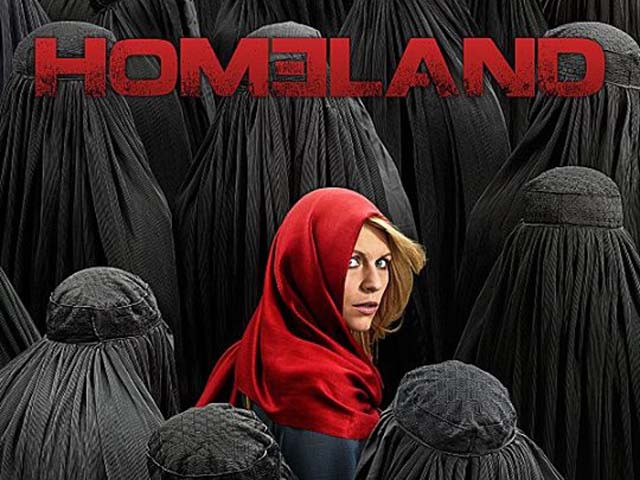It’s not as uncontroversial among the American Muslim community, however; gaining a mixed response primarily because it has been accused of legitimising Islamophobia by portraying many of its antagonists as radical Muslim terrorists. What’s also feared is that Homeland will incorrectly portray Pakistan, the setting of its upcoming fourth season.
Yet I personally think it’s unfair to simplify Homeland as an anti-Muslim rant and dismiss it as yet another production dedicated to proving to the world that Islam causes half of the world to be inherently violent. In fact, Homeland’s complex narrative goes beyond Islamic terrorism, and does not spare American security apparatus and the political atmosphere of the United States in its three award-winning seasons. What Homeland does portray differently is its depiction of ‘turned’ Muslims, or everyday Muslims who transformed into terrorists. Rather than blame religious literature or readings of the Quran, it accuses more secular causes like drone strikes, foreign invasions and occupations for turning normal individuals into terrorists.
This is something that sets Homeland apart from other productions that focus on the Muslim ‘problem’, as it is addressed by Hollywood. Oscar-winning Zero Dark Thirty, also coincidentally placed in Pakistan, and based around the Abbottabad operation of 2011, is much more misleading than what Homeland has been accused of being for three years. All Muslims in Zero Dark Thirty are terrorists or spies; Islamabad is completely stereotyped into a very Middle Eastern location; notwithstanding Pakistan is in the Indian sub-continent and shares no borders with the Arab world. Camels, bazaars, minarets and veils are what categorise what is a very modern part of Pakistan and one of the world’s most planned capitals, and there is no Pakistani throughout the film’s running-time that is either a victim or simply a Pakistani.
Even the terrorists are consistently shown to be devout Arabic-speaking Muslims acting in accordance with Islamic commandments solely for the purpose of destroying the United States and its allies. When the film ends, a postscript highlights the losses suffered since the war on terror began. It would have been acceptable if this causality list wasn’t exclusively reserved for American soldiers and civilians. It ignored the thousands of non-Western civilians who have lost their lives in Afghanistan, Pakistan, Iraq and multiple countries plagued by terrorist outfits and did not act as a justification of procedures that were followed by the CIA to catch Osama Bin Laden, one of the procedures that escalated attacks on polio workers as a consequence.
In contrast, Homeland doesn’t categorise Muslims into terrorists and shows great diversity in representing Muslims, not as monolithic and merely the same being with different faces, but as proper individuals with divergent aspirations. One of Claire Danes’s character’s co-workers is the son of a Lebanese woman and Mexican Muslim convert. Another Muslim CIA analyst is shunned for wearing a headscarf, again, a very rare acceptance of Islamophobia present in the United States that penetrates every section of society.
Stupid mistakes made by the CIA and other American security agencies are often very racist, like simply quarantining some suspects for being of Arab-origin or travelling to Lahore, where in fact the real culprits are white. The CIA is also shown not to keep its promises of protecting individuals who exchange their own lives for preventing attacks on innocent people, no matter how significant their contributions is in the war on terror. Where Zero Dark Thirty’s CIA is very heroic and only keen on preventing villainous Muslims from invading America, Homeland’s CIA is repeatedly slammed for its ineffective policies and ulterior motives.
In light of all this, claiming Homeland is Islamophobic is really, immensely inaccurate. Sometimes people only see the fact that the antagonist, Abu Nazir, is a Muslim, therefore this show is Islamophobic, without recognising that in fact Muslim terrorists do exist and there are radical outfits operating in the name of Islam across the world. It is, on the contrary, a show where a CIA case officer accuses the head of an al Qaeda offshoot of ‘corrupting the Prophet’s word’ and exposing his lies and self-contradictions, and where a Venezuelan imam refuses to give a convert sanctuary by claiming,
‘You are not a Muslim, you are a terrorist.’
Such labels ring untrue when a show is more honest in showing Muslims than Muslims themselves, and reflects that the true definition of a ‘terrorist’ transcends followers of Islam and might just include the top-most echelons of the political pyramid.



COMMENTS
Comments are moderated and generally will be posted if they are on-topic and not abusive.
For more information, please see our Comments FAQ